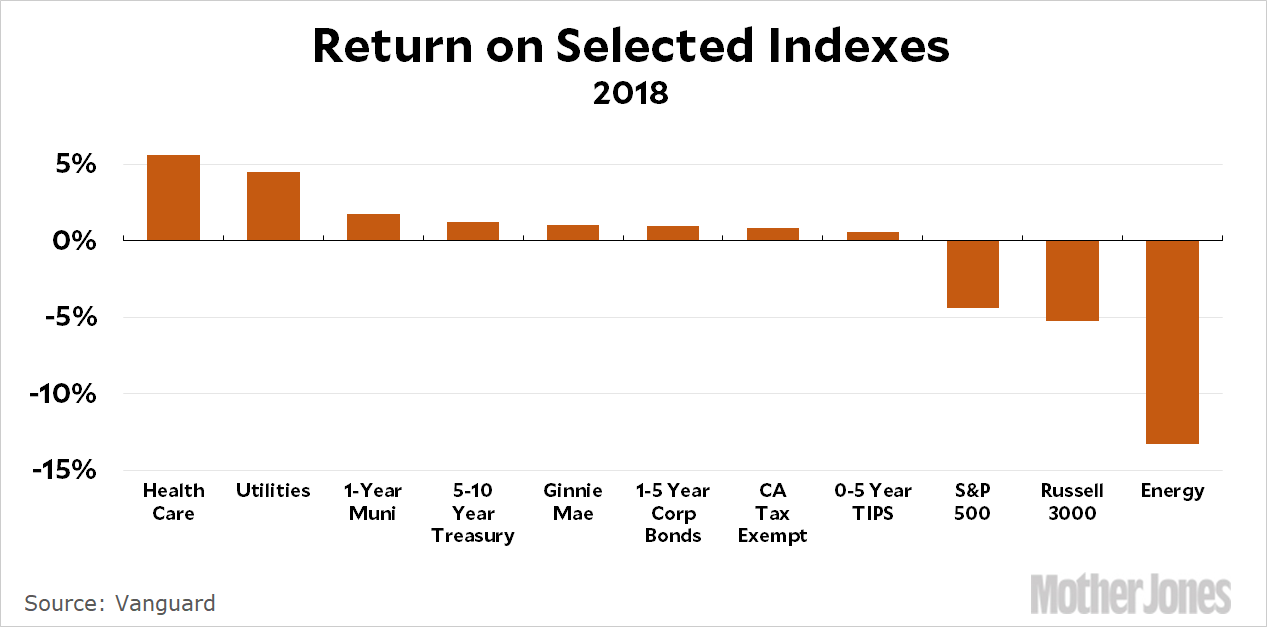We’ve all heard this before, but here is the Financial Times on the performance of hedge funds last year:
Hedge funds run by GAM, Schroders and BlackRock delivered significant losses in 2018 as declines for stock markets globally and rising US interest rates led to widespread difficulties for alternative managers….Only 16 hedge funds were able to deliver positive returns before fees in 2018 from a universe of 450 monitored by HSBC’s alternative investment group.
Only 16! In fairness, 2018 was a tough year for the stock market. But it wasn’t a tough year for everything. After all, year-end GDP growth was most likely above 3 percent, the best growth number since before the Great Recession. There was certainly money to made somewhere. For example:

If you just dumped all your money into an S&P 500 index fund, you would have done poorly. But if you’d thrown some darts and picked four or five funds in a variety of areas, you would have made money and paid a management fee on the order of 0.5 percent.
Of course, hedge funds are supposed to be much smarter than this. They also have access to far more investment opportunites than just the mundane mutual funds that us financial schlubs are limited to. And they charge enormous fees: typically 20 percent of gains plus 2 percent of the total fund assets. Since nearly all of them lost money in 2018, we can ignore the 20 percent profits fee, but they’re still getting that 2 percent assets fee.
So: invest in schlub funds and earn, maybe, 2 or 3 percent with a 0.5 percent management fee. Invest in a hedge fund and lose 2 or 3 percent plus a 2 percent management fee.
If this were a one-year deal, it wouldn’t matter. But we hear this year after year after year: the average return on hedge funds is almost always lousy. And every year we schlubs scratch our chins and wonder what’s really going on. Why do super-rich people invest in these things?
And every year we don’t get an answer. So there must be something else going on. The super-rich aren’t stupid. They aren’t investing their billions year after year in funds that do worse, on average, than a workaday blended equity/debt fund from e-Trade or Vanguard.
So seriously, what’s going on? Are hedge funds really as bad as they seem to be? Or is there something that all the hedge fund critics are missing?














